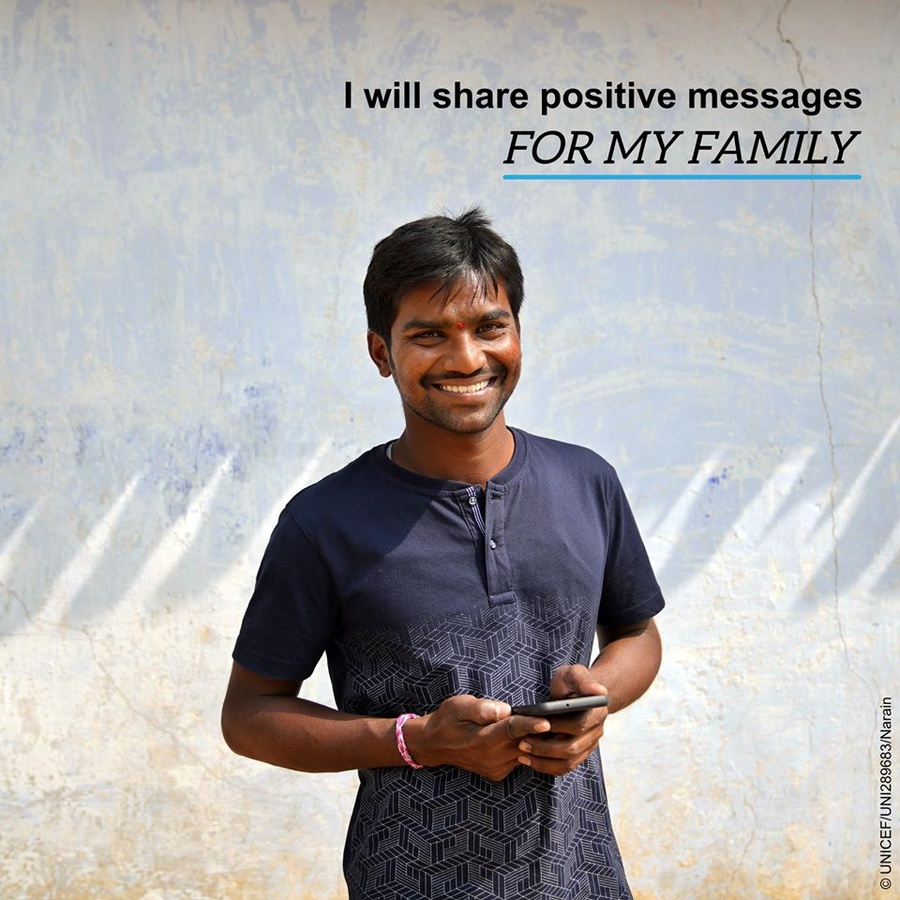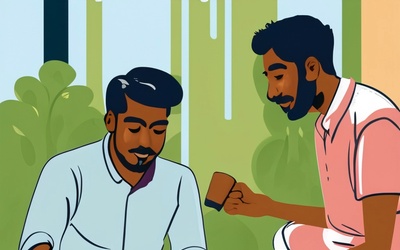- In a press conference in February 2020, the Director General of WHO confirmed that Coronavirus, or COVID-19 for the disease term, must be treated as an infodemic, in addition to being a health crisis. He stated, "Fake news spreads faster and more easily than this virus, and is just as dangerous...we call on all governments, companies and news organizations to work with us to sound the appropriate level of alarm, without fanning the flames of hysteria."
- To understand how the excessive amount of information being shared and consumed every minute in India is influencing the general population's understanding of the issue, the Communication for Development (C4D) team conducted a rapid assessment to gauge the levels of knowledge and awareness on COVID-19, its preventive measures, responses to symptoms, and sources of information. The C4D team, which works on developing social and behavior change communication (SBCC) strategies and interventions as part of UNICEF India’s COVID-19 response, has been working on informing state and national level Risk Communication and Community Engagement (RCCE) strategies and aims to incorporate the feedback from the assessment into the process.
- India began Phase 1 of its lockdown (enforced physical distancing) on the 24 March 2020. This rapid assessment on COVID-19 ran on U-Report, a digital surveying application built on an open source platform, with the help of the India Innovation team from the 31 March to 15 April. The survey was hosted on WhatsApp and Facebook Messenger, and the links were disseminated widely by UNICEF and its partners to the general public. The automated questions were posed in multiple choice and open ended formats. This list of questions can be found at https://india.ureport.in/opinion/1632/
- By the deadline, the assessment received 22,924 responses – the largest response on U-Report India since the platform's launch in the country – from respondents across India; the data covered feedback from 28 states and 4 union territories; 48 per cent of those asked, belonged to rural geographies/localities.
- The assessment found that:
- 92 per cent of respondents have heard about Coronavirus or COVID-19
- TV (67 per cent) is the primary source of information
- It was followed by Facebook (11 per cent) and WhatsApp (9 per cent)
- 92 per cent of respondents know correct prevention measures
- 75 per cent of respondents know correct measures in case of symptoms
- 68 per cent of respondents understand social distancing completely
- 70 per cent of respondents understand self-quarantine completely
- Female respondents were marginally, but consistently more aware than male respondents.
- 21% respondents find it difficult to practice social distancing; more rural respondents find it difficult.
- When asked why they find it hard to practice social distancing, many respondents stated that they are either not in the habit of doing so or are still not used to it. Respondents said that staying at home has caused mental strain (e.g. boredom, depression, fear, frustration, feelings of hate, irritation, loneliness, negativity, restlessness, stress, suffocation, sleeplessness). Some respondents said they have limited access to essentials, either due to limited supply or because of financial difficulties (due to loss of job, closing down of business, or decrease in income). A few respondents said they have slow internet speed or are facing space constraints in their homes making it difficult to stay at home.
- Some respondents also wrote about other concerns that they have, relating to COVID-19. The most common concerns related to financial difficulties (income and debt-related), food shortage (at home) and the fear of going hungry. Many respondents complained about low testing levels and PPE shortage. Some respondents stated that their education is being negatively affected by the lockdown. The survey also received hate-comments targeting certain religious groups and castes, blaming them for spreading the virus.
- The C4D team has attempted to triangulate the findings from this rapid assessment with studies being conducted by other partners such as IDinsight, Population Council, Kantar, BMGF and found them to be largely consistent with other studies. The findings from this assessment are informing national as well as state-level RCCE plans and materials being developed. Moreover, these findings have been used subsequently during the formation of the COVID-19 Stigma and Discrimination Strategy (in partnership with the Ministry of Health and Family Welfare) and the COVID-19 Urban Slum Strategy (in partnership with WHO).
Export and Share
Want to tell the world about this? Download this image to easily share on social media or for a beautiful presentation!








